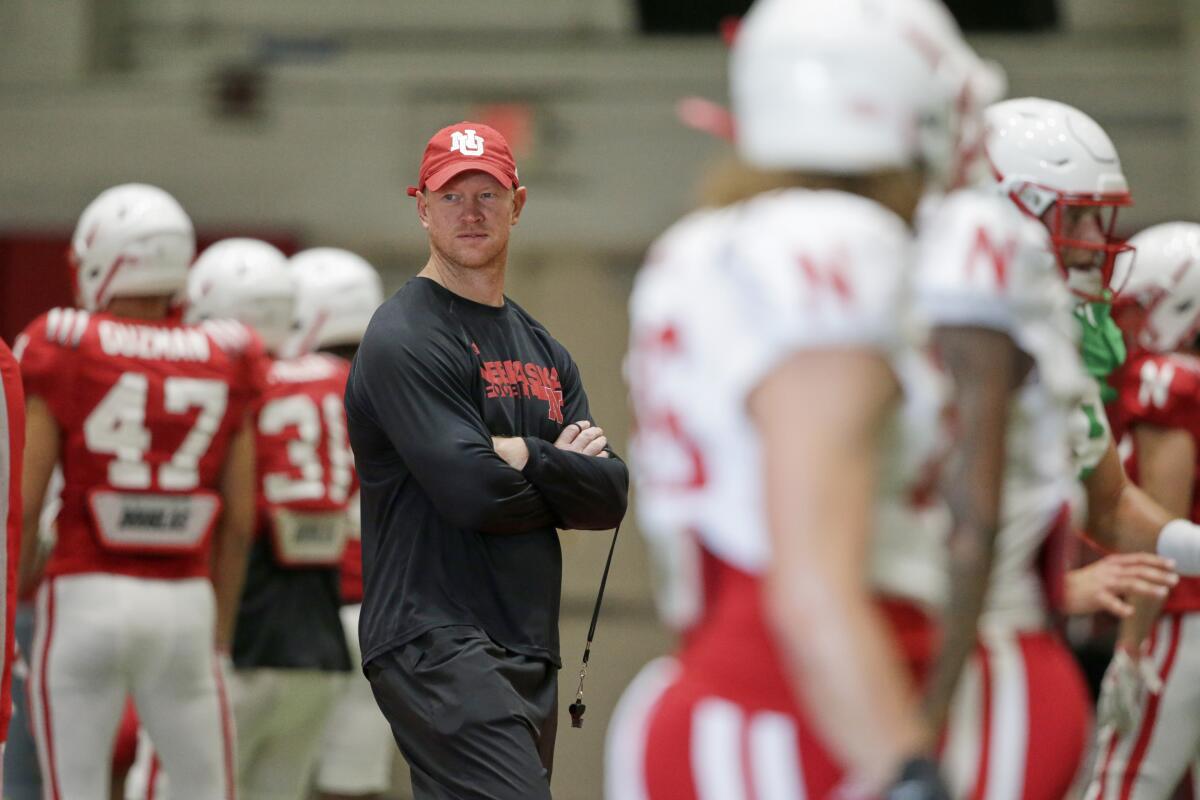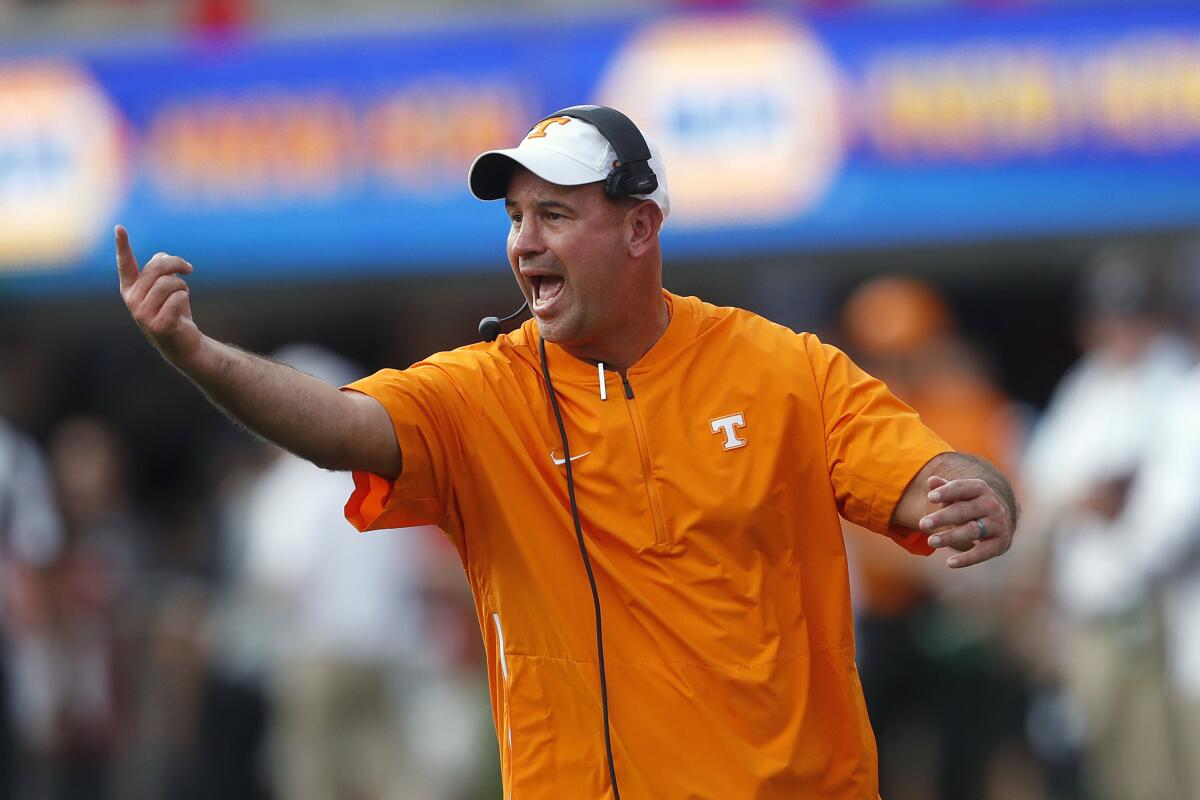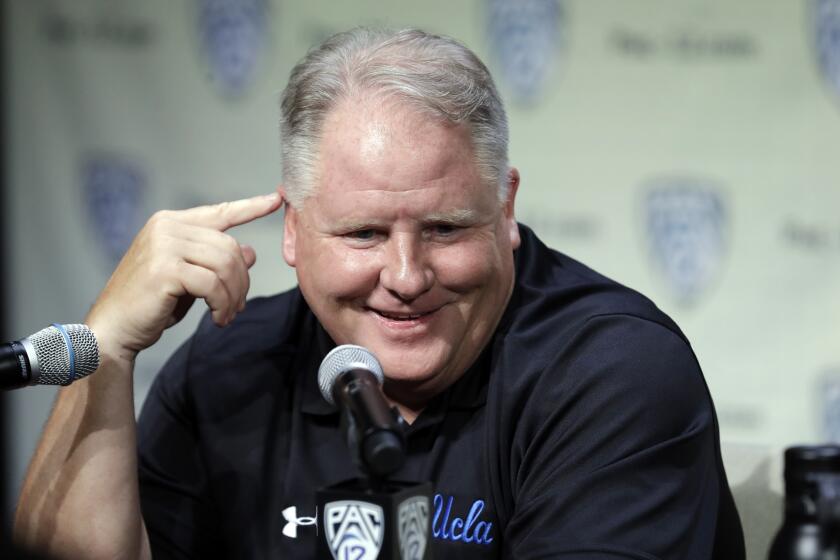College football 2019: Which traditional power with a second-year coach will rise?

J. Brady McCollough looks at the 25 biggest storylines in college football heading into the 2019 season.
The 1998 Orange Bowl felt special.
Nebraska legendary head coach Tom Osborne was coaching his last game for the Cornhuskers, who were undefeated and trying to make an argument for a national championship in the final year of the Bowl Alliance, which preceded the Bowl Championship Series.
Tennessee legendary quarterback Peyton Manning, a four-year starter who did everything for the school except win a national championship or a Heisman Trophy, was playing his last game for the Volunteers.
As if all that weren’t enough, it was the first time Big Red and Big Orange — two of the winningest programs in college football history — had shared the same patch of green grass for 60 minutes.
Too often it happens this way, but the game did not live up to the hype. Nebraska, led by quarterback Scott Frost, dismantled Phillip Fulmer’s Volunteers 42-17, affirming Manning’s legacy at Tennessee as a great quarterback who couldn’t win the big game (he went 0-4 against Florida) and pushing Nebraska to the No. 1 ranking in the coaches’ poll. The Huskers split the national championship with undefeated Michigan, which kept its place atop the Associated Press poll.
J. Brady McCollough looks at the biggest storylines in college football ahead of the 2019 season.
The next year, Tennessee shocked the nation by going undefeated and winning the first BCS title over Florida State with Tee Martin as its quarterback. The next year, Tennessee and Nebraska met for a second time in the 2000 Fiesta Bowl, with the Huskers winning again, 31-21. In 2001, Osborne’s replacement, Frank Solich, took Nebraska back to the BCS title game at the Rose Bowl, where the program lost to a dominant Miami team packed with future NFL stars.
Soon after, Tennessee and Nebraska began their long descent into what has become a humbling two decades, and that Orange Bowl now serves as a signpost to a bygone era for both programs.
Nebraska has not played in a BCS bowl or New Year’s Six bowl since that Rose Bowl loss to the Hurricanes. Neither Bill Callahan nor Bo Pelini could get the Cornhuskers over the hump, and it’s not even worth mentioning Mike Riley’s tenure.
Tennessee has not had a 10-win season since 2007, a year before Fulmer agreed with his bosses to step down.
The programs, mired in mediocrity, met in the 2016 Music City Bowl. It didn’t feel right, and it said everything. Tennessee won 38-24, but few noticed or cared.

After the 2017 season, Nebraska brought back Frost as its head coach, rewarding one of the country’s most loyal fan bases with the hottest name on the market. Around the same time, Tennessee brought Fulmer back as its athletic director. Not coincidentally, it would be Fulmer’s job to hire the next head football coach. He went with Jeremy Pruitt, who was the defensive coordinator on national championship teams at Florida State in 2013 and Alabama in 2017.
This is what struggling historically powerful programs often do. They hark back to better days. Fans feel a little prouder, open up their wallets a little more and are willing to forgive slow starts, which happened at both places — Nebraska went 4-8, Tennessee 5-7.
Both programs won’t get to that Orange Bowl level in 2019, but Nebraska, thanks to Frost’s offensive mind and his talented quarterback, Adrian Martinez, was the first team out of the coaches’ preseason top 25.
In the Big Ten West, Nebraska doesn’t have a team such as Georgia standing in its way. For that matter, it doesn’t have a team such as Florida to contend with either.
The Cornhuskers may get buzz more quickly, but both programs are in the same spot, hoping that they’ve suffered long enough.
More to Read
Go beyond the scoreboard
Get the latest on L.A.'s teams in the daily Sports Report newsletter.
You may occasionally receive promotional content from the Los Angeles Times.











